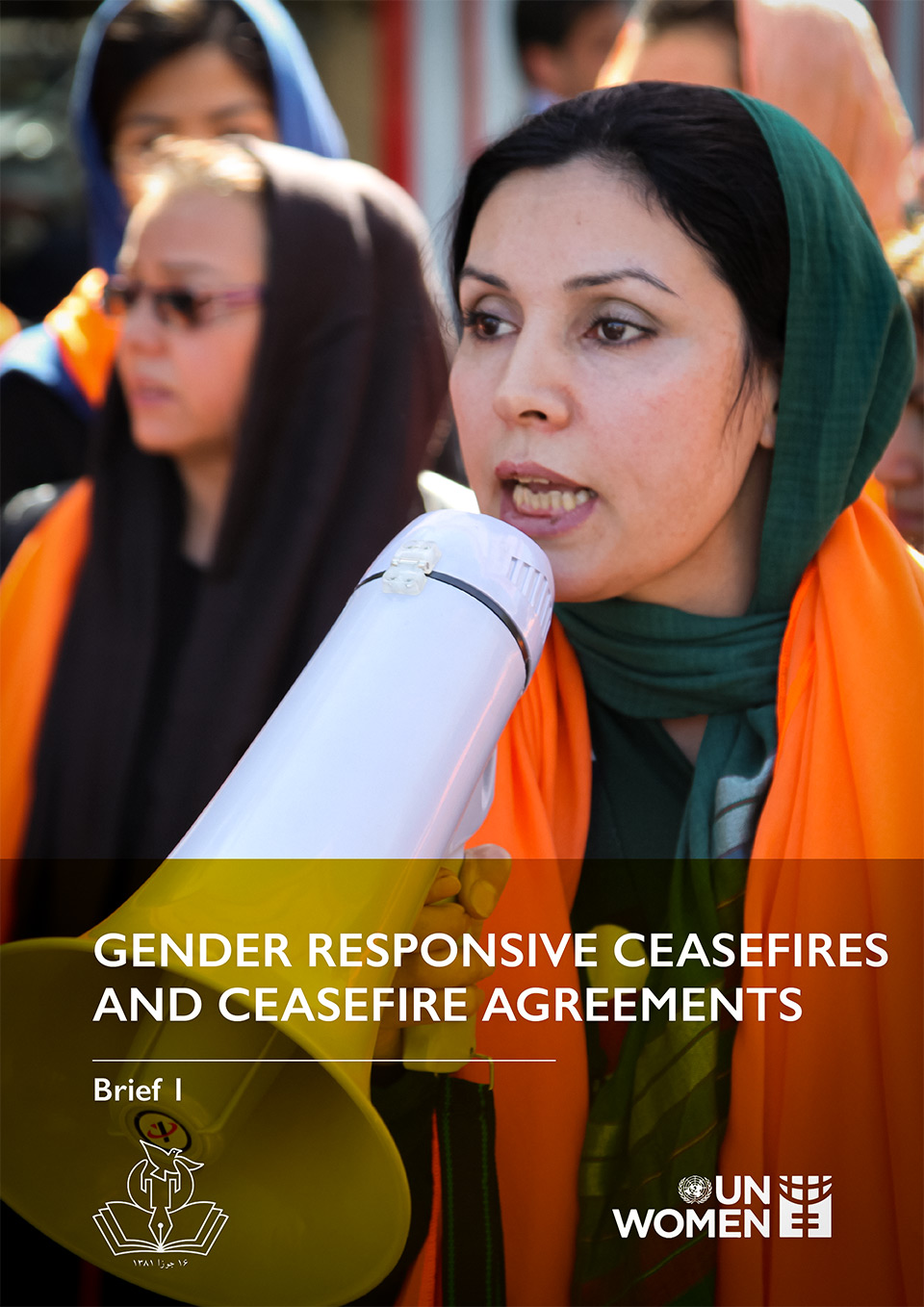
Gender Responsive Ceasefires and Ceasefire Agreements

Globally, women have long been at the frontlines of conflict and crisis, often leading and participatingin negotiations with parties in conflict to arrive at truce and ceasefire modalities. Yet often, women’sexpertise and priorities are excluded from formal ceasefire agreements and monitoring mechanisms.This exclusion is informed by the assumption that discussion on ceasefire requires technical knowledgeon military skills, which tends to bring women in, at later stages of the peace process.
In Afghanistan, women have led robust campaigns demanding ceasefires. As recently as January 2021,approximately 700 women in Kabul and 70-100 women from across 33 provinces of Afghanistan cametogether to launch a campaign (#CeasefireforPeace) calling for an immediate ceasefire. Afghan womenhave also launched an online petition ‘Afghanistan - Protect Women’s Rights & Demand Ceasefire’calling for an immediate and complete ceasefire as a condition to continuing peace talks.
This brief reiterates that gender provisions in ceasefire negotiations remains imperative to achievinga sustainable and inclusive peace. It includes nine recommended entry points for ensuring gender responsiveprovisions in ceasefire negotiations.